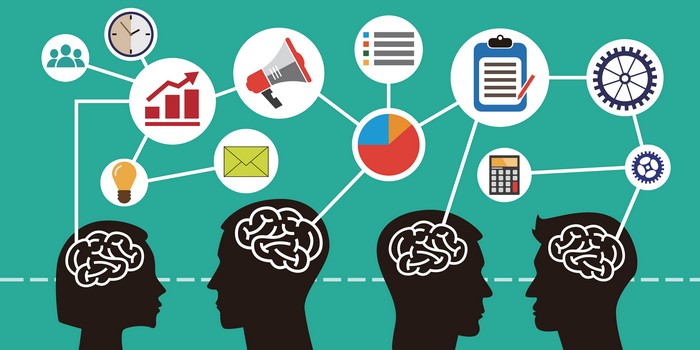
Overcoming Workplace Listening Barriers: Top 5 Obstacles

Discover the top 5 barriers to effective listening in the workplace Learn how distractions, noise, mindset, interruptions, and physical state can impact your ability to listen and communicate effectively Improve your listening skills and enhance your professional relationships
Active listening is a crucial skill set for any workplace to ensure tasks and responsibilities are efficiently and effectively completed. It is a learned skill that can be improved with experience and knowledge. Listening should be an active process rather than a passive one. However, there are barriers to effective listening that can hinder our ability to absorb vital information from the external world.
Poor communication and ineffective listening skills among team members can lead to a host of problems, including misunderstandings and conflicts, which can ultimately harm the business. Additionally, barriers to effective listening can have damaging consequences for an individual's job security, motivation, credibility, and overall morale in the workplace.
Top 5 Barriers to Effective Listening at a workplace
#1 Distraction and being preoccupied
Being distracted and preoccupied during the peak hours of work or during important meetings and seminars is rated as one of the prominent Barriers to Effective Listening.
You appear to be there in body, but your mind is absent. Your thoughts drift away, and you pretend to pay attention to the conversation, but you have no clue about the discussion topic in the meeting.
Frequently, managers and senior colleagues can detect when you're not engaged in the discussion due to their extensive experience dealing with such situations.
Factors that cause distraction and being preoccupied:
#1.1 Mobile phones and other smart devices
#1.2 Emotions
In today's digital age, social media has become a major hindrance to effective listening. With the constant use of networking and chatting apps, people tend to remain hooked to their devices even during important work meetings and seminars. This, in turn, affects their listening skills and leads to low levels of efficiency and productivity.
Emotions and feelings are known to pose as major obstacles to effective listening. When an individual is struggling with personal issues such as a breakup, financial instability, family conflicts, or workplace politics, it is easy to become consumed by a constant cycle of thoughts.
It is crucial to address and manage these issues promptly as they can lead to severe mental health concerns such as anxiety, depression, and other related conditions.
#1.3 Visual distraction
If the meeting is happening at a hotel, and you are unable to take away your attention from the interiors or other people at the hotel is also a form of a visual distraction.
Watching television or presentation slides without giving proper attention to the discussion results in the Barriers to Effective Listening
#2 Noisy environment
Excessive noise in the workplace can be a major hindrance to employee productivity and communication, particularly during important meetings and presentations. It can make it difficult for employees to focus and listen effectively, leading to decreased efficiency and potential misunderstandings.
#3 Mindset and Personal Perspectives
One of the major obstacles to effective listening in the office is the noisy environment created by a number of factors such as employee conflicts, ongoing construction work, domestic chores, and issues with the IT infrastructure.Individuals we encounter in the workplace often bring with them their own unique mindsets, viewpoints, and preconceptions regarding their colleagues or the tasks at hand.
Their outlooks can range from optimistic to pessimistic, affecting their overall demeanor. When their attitude leans towards negativity, collaborating with them can prove to be challenging as it requires adapting to their mindset. Additionally, they may possess a personal prejudice towards a colleague, leading them to insist on completing a task solely with that individual. This may result in them disregarding any of your valuable insights, despite their merit.
Fragment 15 rewritten:
Additionally, team members' insecurities and jealousy in the workplace can hinder effective listening. Your growth and progress may cause some team members, particularly seniors, to feel threatened by their position and designation. As a result, they may disregard your ideas and suggestions. Moreover, monotonous work tasks can lead to distraction and further barriers to effective listening.
#4 Interruptions
Interrupting someone during a presentation or important speech is a major obstacle to effective listening. This behavior is not only disrespectful to the speaker, but it also hinders the audience's ability to fully absorb the information being presented. The reasons for interruptions may vary.
Jealousy or insecurity
Making his attempt to address the crowd a failure
Challenging his knowledge and expertise
To disturb the environment
#5 Physical state
Intentionally disrupting important meetings and conversations is never acceptable and typically suggests an underlying motive. In these situations, it is important for upper management to step in and address the individual's behavior to prevent further interruptions.
When a person is tired, hungry or uncomfortable, they may find it difficult to concentrate and retain information. This can hinder effective listening and lead to misunderstandings or errors in communication. Additionally, physical distractions such as noise or discomfort can also negatively impact one's ability to listen effectively. It is important to ensure that one's physical state is conducive to active and attentive listening in order to overcome this barrier.
Feeling hungry can distract a person from effectively listening during a meeting due to the discomfort caused by hunger pangs and lack of necessary nutrition and energy. Additionally, sitting in an uncomfortable position can also impede the listening process.
Depression and anxiety issues also make the body weak and low on agility.
Health issues such as fever, cough, cold, and stomach issues also act as Barriers to Effective Listening.
If the person is tired and exhausted also makes him deviate from the important conversation.
Conclusion
It is crucial for organizations to address and overcome barriers to effective listening in order to enhance employee productivity and overall organizational success. Management and HR departments have a responsibility to identify and tackle these obstacles to ensure a smooth and efficient workflow.

















